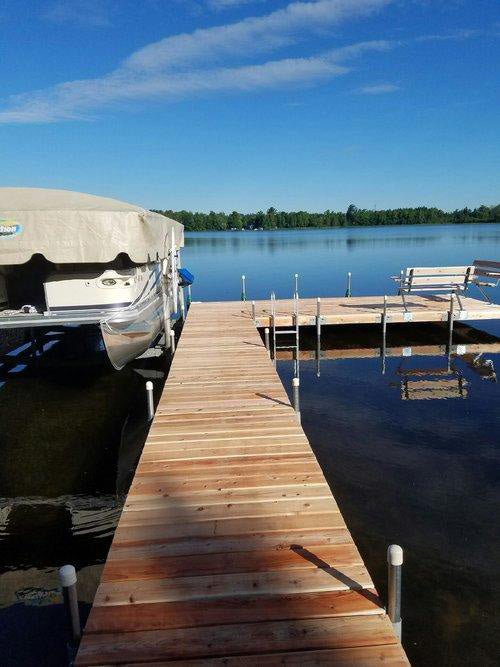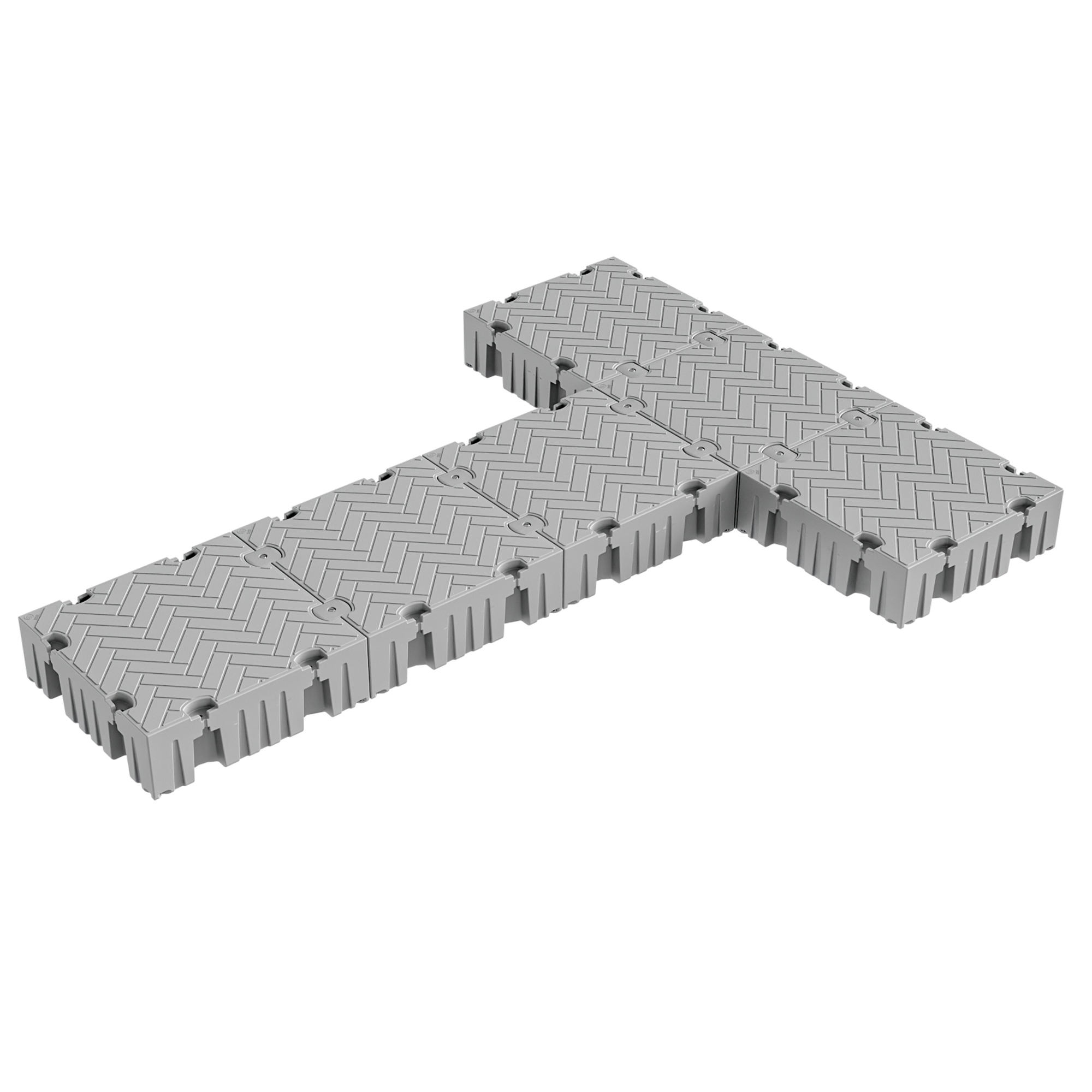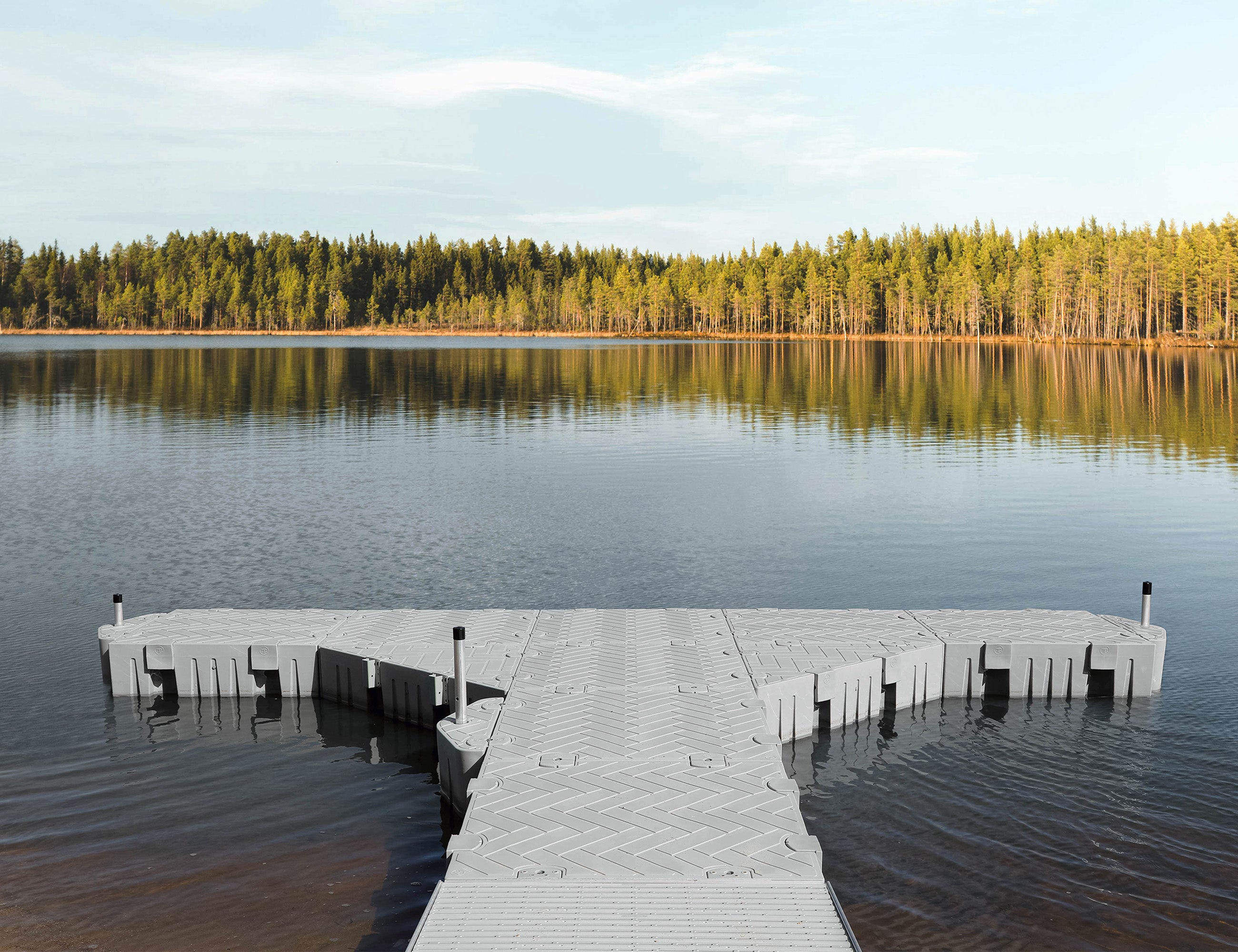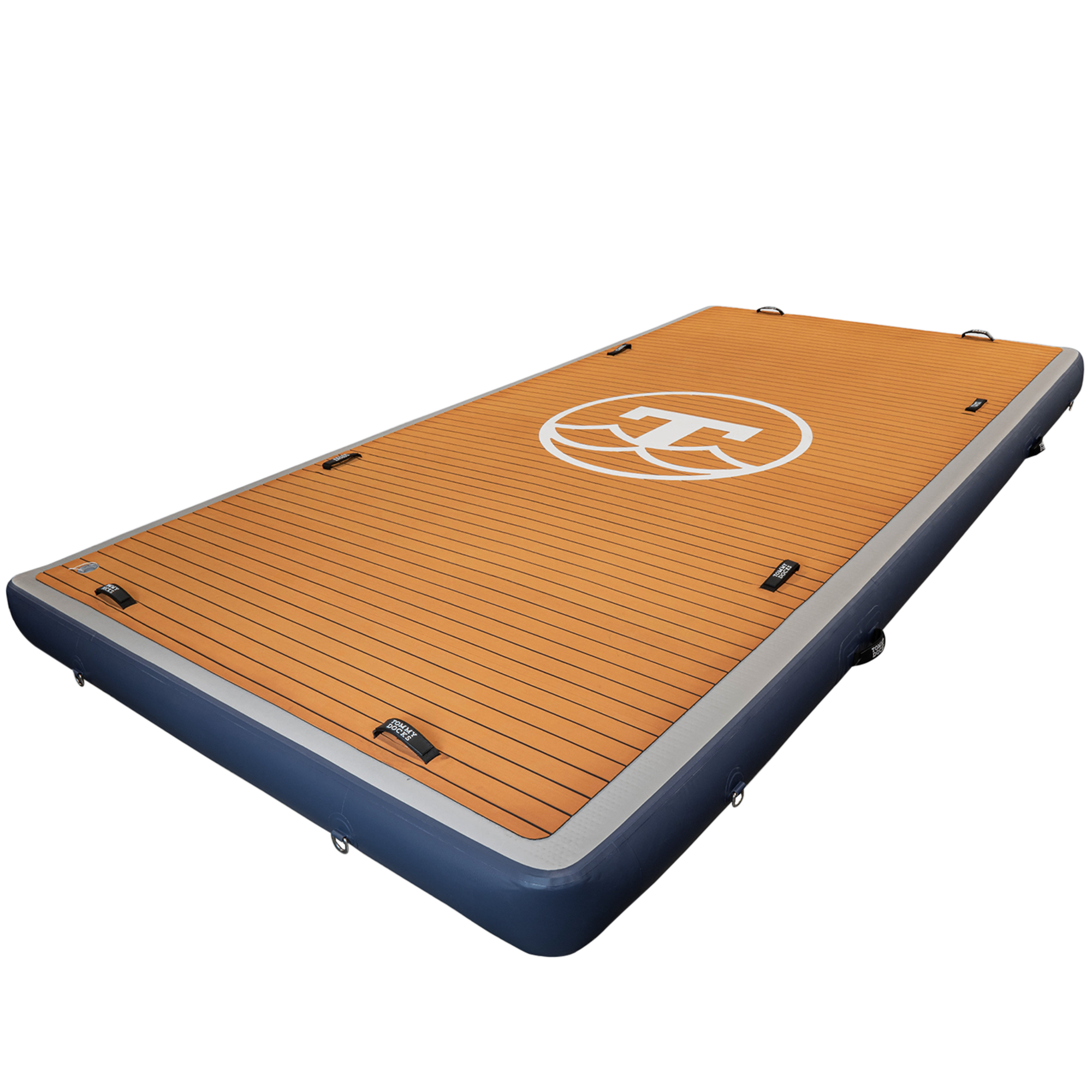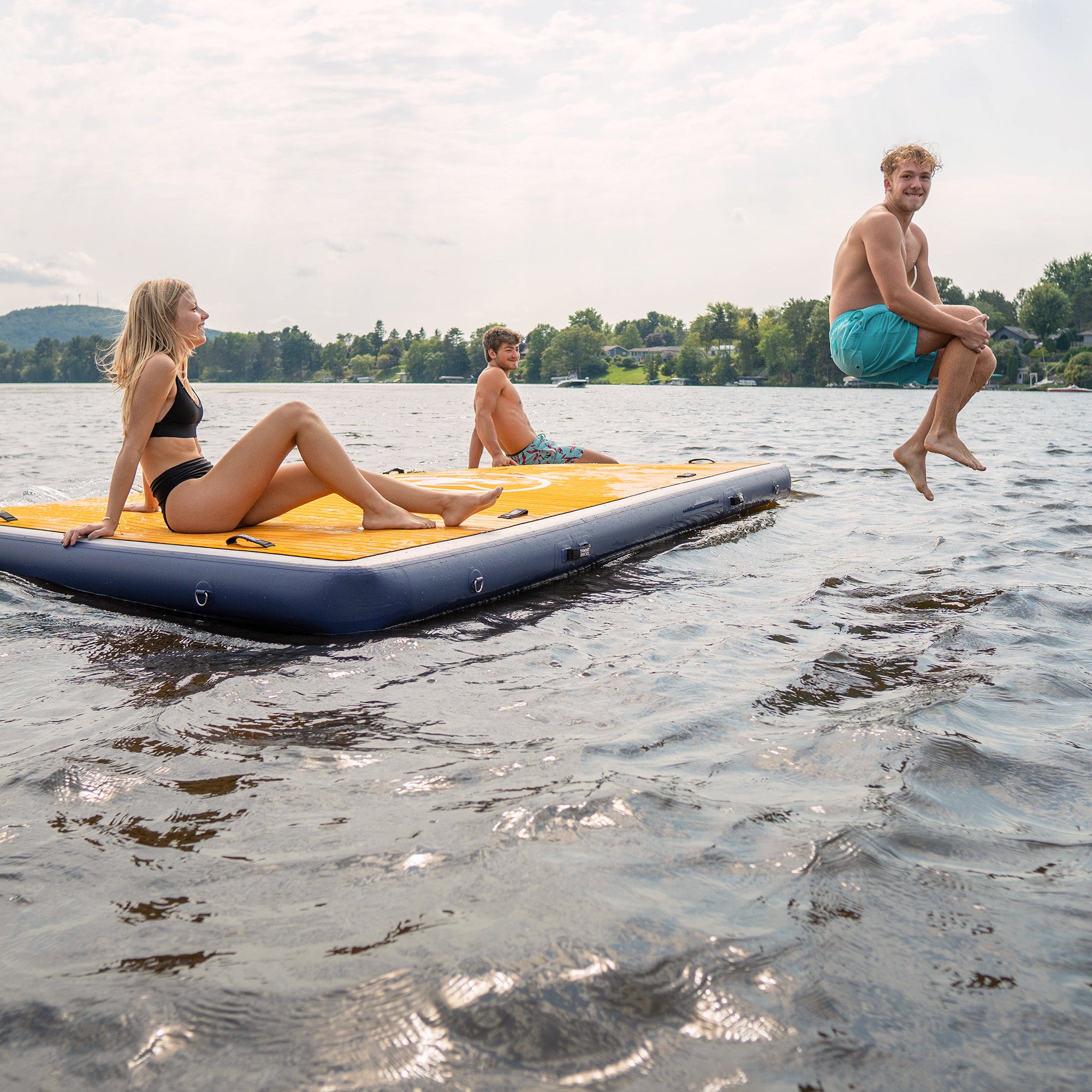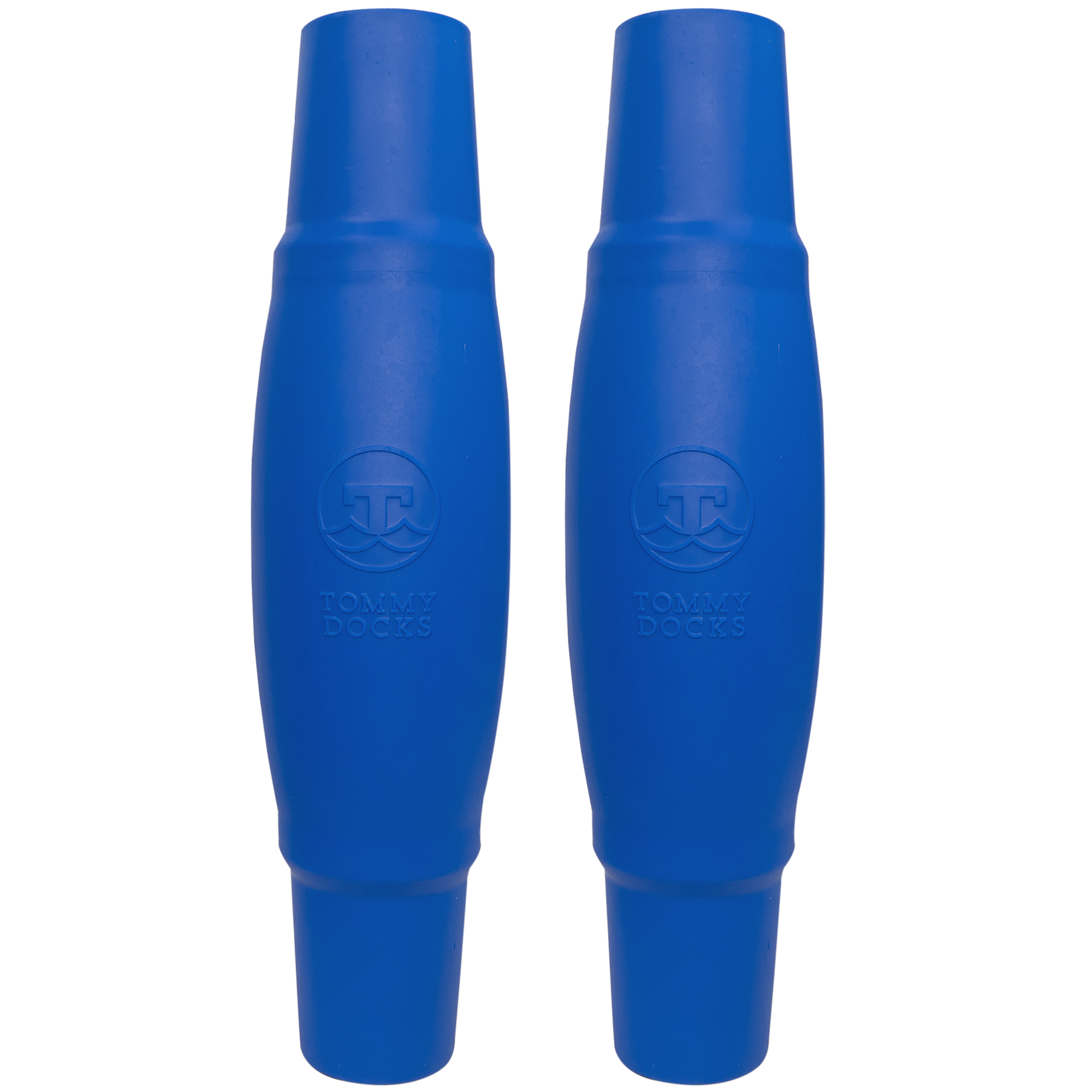
If you own a boat and are considering installing a dock at your home, you probably have one huge question: Is a stationary dock or a floating dock a better option for my needs? Answering that question can be tough since everyone has unique preferences and requirements. Everything from your location to what you plan to use the dock for will determine whether you should go with one of the many stationary boat dock kits or choose boat dock floats and design a dock on your own.
The basic thing to keep in mind when it comes to these two types of docks is that the activities you do and your needs should determine which dock to choose. Many people make the mistake of going about this the other way around, which can leave them with an outstanding dock that doesn’t fit their needs. Before we go any further, we want to share some insight into what makes stationary boat docks differently from the floating versions.
Stable and Secure Stationary Boat Dock Kits
Stationary docks tend to be the most stable option for boat owners. They can extend your property and be used for all sorts of gatherings, social events, and nights with friends that you host at your own home. Some of the features that make stationary boat dock kits stand out include:
- Can offer cost savings depending on what model you choose and which materials are used in the construction of the dock.
- Features stability since the dock rests on the ground instead of the water, so it might be more suitable for relaxation activities.
- A large number of options allow these docks to feel like a true extension of your home and any other buildings you have on your property.
The main thing that makes a stationary dock different from a floating dock is that it doesn’t sit on the water. Instead, a series of pilings are placed in the bottom of the body of the water near your home. Once that is complete, the stationary dock and all of your boat dock hardware will be installed on top of the pilings to create a secure and stable structure.
Pros & Cons
Based on the construction method, a stationary dock is more protected than the alternative. Regardless of tides or currents, they stay in the same place. In many cases, this kind of dock also lasts longer than a floating dock. These docks are also useful in areas where lots of boats are present. They aren’t going to move around even if the water is seeing a lot of movement. This makes it easier to get into a boat and out on the water.
Since this dock is stationary, your boat dock ladders and other accessories will also be in a stable space. This makes a stationary dock excellent for hanging out with friends and family members. The docks also work well in shallow water, which isn’t the case with a floating dock. Many people also find a stationary dock easier to use than one that moves around on the water.
However, these docks do need to be secured to the floor of the ocean or lake so installing them can be expensive. Professional help is also typically needed to put things together. As the water gets deeper, the more expensive the process becomes. Because of that, many people choose floating docks for deep water.
Modern and Adaptable Floating Docks
While stationary docks have been around for a long time, floating docks are more modern. The first iterations of these docks came about in the 1990s and their use has only become more popular as time has gone on. A floating dock is durable and often available in numerous configurations. Some things that differentiate them from other docks include:
- Easy installation and assembly that requires no need for professional help so docking a boat can happen sooner.
- Offers automatic adjustments based on water levels due to season or tide changes so the dock can be used at any time of year and in any circumstances.
- Are anchored to the water and attached to a structure so you can make changes as often as you like through floating boat dock sections.
The floating dock is simple to understand since the name says it all. A floating dock is a dock that quite literally floats on top of the water. Rather than using wooden pilings that go into the ground under the water, the dock itself sits on top of the water. These docks are useful in some environments and less functional in others.
Pros & Cons
With floating docks, there are numerous ways to construct the dock. Plastic barrels, dock floats, and other items can be used. Floating docks tend to be a good choice for those who want to swim near the dock since they are right on the water and easy for swimmers to access to get in and out of the water. These docks are also highly versatile for use in low or high water. They can be attached to pilings, the shoreline, or even a stationary dock. However, if the water gets very low, this can cause issues since the floats could be damaged.
Another benefit of a floating dock is that the configuration can be changed at any time if you don’t like how it looks or functions. All you have to do is remove the sections and put them in another location. A floating dock is often inexpensive and works well in deep water, but it does cause you to experience the feeling of the water moving, which some people do not enjoy.
Make the Right Choice for Your Needs
Everyone is looking for something different so you’ll have to consider what matters to you when choosing between a floating or a stationary dock. No matter what you choose, make sure you understand how to maintain it and add boat dock accessories that add to its functionality for yourself and any guests who visit. You can find both stationary boat dock kits and boat dock floats at TommyDocks!

